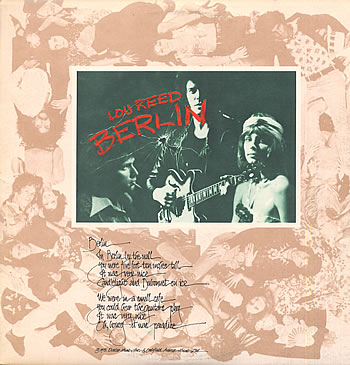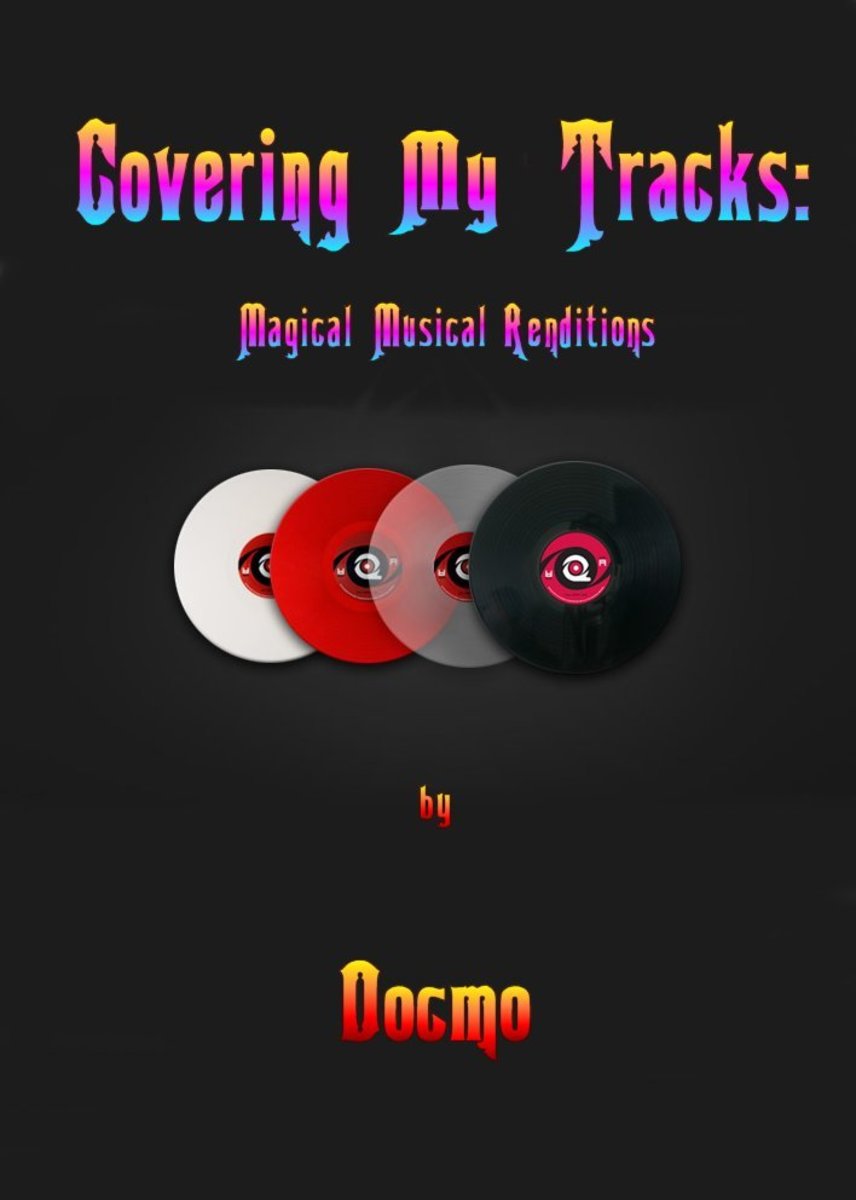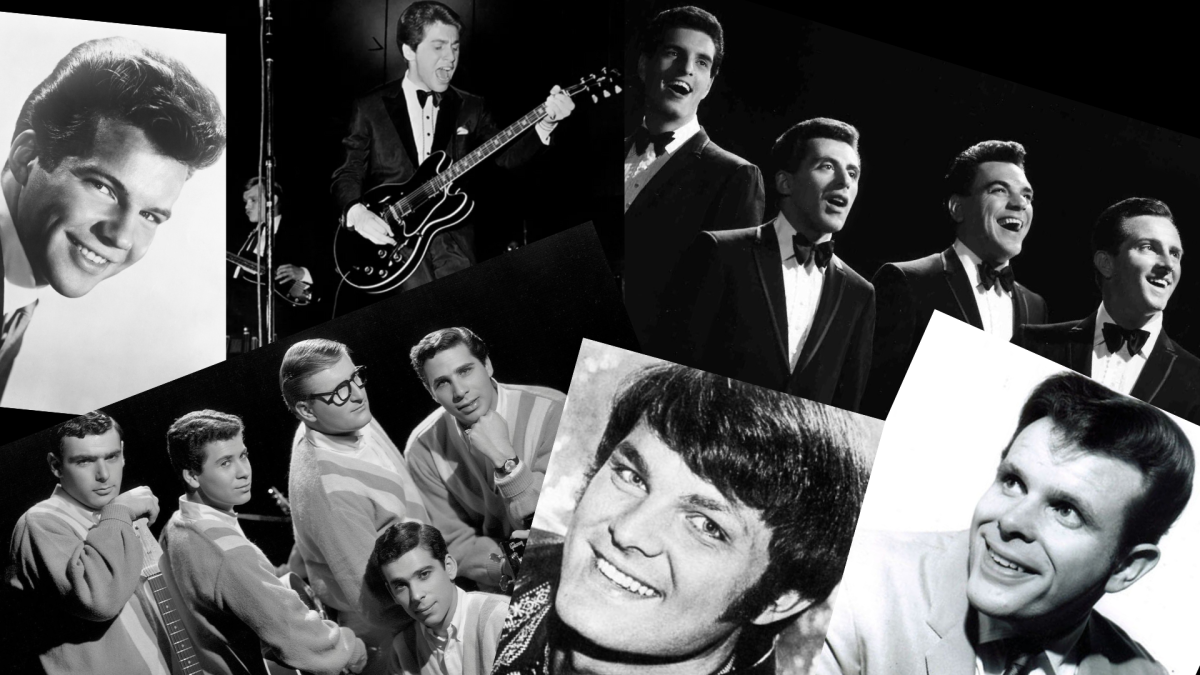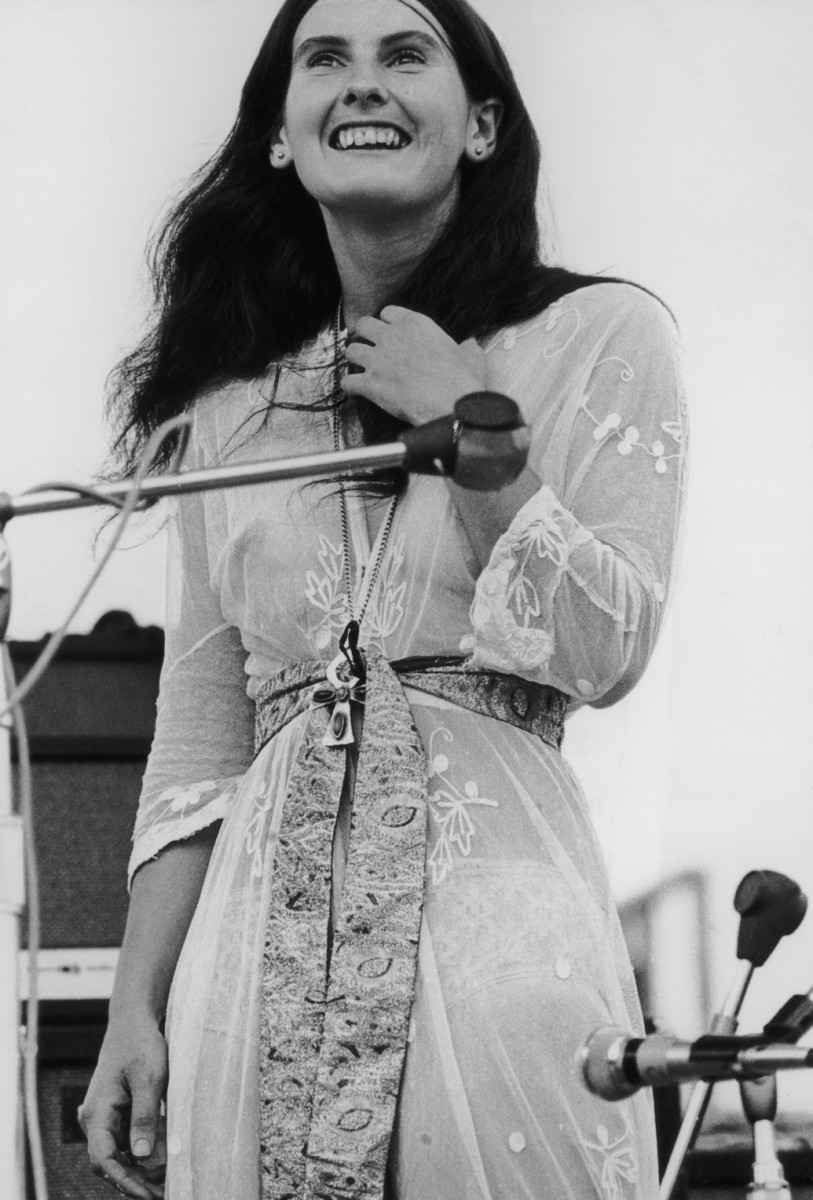Concept Album Corner - 'Berlin' by Lou Reed

As we continue this depress-a-thon called February, what better way to darken the mood than to talk about Berlin during The Cold War? For those unaware, Berlin has had a rather glum history throughout a good chunk of the Twentieth Century. That history is detailed quite uncomfortably due to Germany’s part in World War II, so to make a long and uncomfortable story short and to avoid a grim recounting of WWII, Berlin, the former prosperous capital of Germany, was divided into East and West Berlin by the Allies after WWII. Living conditions and populations dropped significantly from the older, glorious days. The division was notably one of the worst aspects as, in 1961, the Berlin Wall was built to keep people from leaving the German Democratic Republic. To put this into perspective, most countries build walls to keep people out, but this wall was meant to keep people in, trapped in their impoverished habitats, destitute and poor. The history of Berlin, especially around this time period, has been a huge source of inspiration for musical artists, especially in the Seventies. The Berlin Wall certainly had to have some influence on the Pink Floyd rock opera The Wall. David Bowie and Iggy Pop, attempting to wean themselves off of their addictions at the time, moved to West Berlin to write The Idiot (Iggy) and Low (Bowie). One artist, however, wrote a rock opera before all of these artists and, while receiving mostly negative reviews upon its release, has gone on to be one of the artist’s most seminal works. That artist would be Lou Reed.
Often called ‘The King of New York’, and good lord one can see why, Lou Reed was the main man behind one of the most famous cult bands, The Velvet Underground. Though the group released very few albums, their influence is wide-spread and sprawling amongst alternative rock artists even today. Apart from Velvet Underground, Reed is an artist who is known for his lilting, meek voice like a young Leonard Cohen, his prose-like lyric writing, and his notoriously bad attitude. As a young man, he once stated that his primary goal was to “write the Great American Novel in musical form” (paraphrasing). His third album after the hit that was Transformer (surprisingly, not a concept album about battling robots), was Berlin, a romance rock opera that was critically panned on it’s initial release, which has now on to be one of Reed’s most highly regarded works, notable for its use of orchestral arrangements by Bob Ezrin.
1.) Berlin – An abrupt buzz of noise introduces us to the setting of the album: Berlin, of course, the opening taking place in a bar with a crowd of drunkards, slurring and moaning in through a fuzzy, dirty radio of sorts, even singing along to a big-band version of a Happy Birthday song, before the real song takes place with the trill and dance of pianos, smoky and sexy, creating a noir-like atmosphere. The song introduces us to Lou Reed’s songwriting style, which acts much more like prose than poetry, describing scenery and feelings straightforward and bluntly. In Berlin/By the wall/You were five foot/Ten inches tall/It was very nice/Candlelight and Dubonnet on ice. The simple use of scenery and description is obviously very minimalist, as though Reed is trying to evoke something powerful from the unsaid. In that sense, his words become poetry in themselves. The set-up is simple and clear how the two characters, Caroline and Jim, have fallen for each other. It doesn’t exactly explain why, however, which can be interesting food for thought later on. This is the highest point of the album before everything takes a spiral downward.
2.) Lady Day – The pianos bang right into the next song, an organ thrumming along like a funeral march, the drums thick and fleshy like the pound of a heartbeat. We are introduced to the character of Caroline a little more formally as the story’s primary universal chew toy, shown here as a shy, introverted young woman. As she walks on down the street/She’s like a child staring at her feet. The music soon rises into a glamorous, sparkling dance piece as Caroline walks into the bar from earlier, as She had to go in and sing/It had to be that way. A key trait of Caroline’s that is shown here is her dependency on external acceptance. The chorus for ‘Lady Day’ is very cabaret-like, using woodwinds and a slow marching piano ditty, Jim looking on in disgust as he watches his Lady Day, his Germanic Queen, his radiant angel, prostituting herself for attention and acceptance. At the end of her night at the bar, Caroline leaves, having successfully entertained the patrons, and going back to the ugly reality of her lifestyle in Berlin. She climbed down the bar/And went out the door/To the hotel/That she called home/It had greenish walls/A bathroom in the hall. One of the strengths of Reed’s clear and prose-like lyrics is that, rather than describe a scene with one’s emotions and metaphors, metaphors and emotions are being built from the actions and the setting surrounding the characters. This has to be one of the best tracks on the album.
3.) Men of Good Fortune – From here on out, the songs grow progressively bleaker and more sorrowful, with ‘Men of good Fortune’ being the starting point. In depicting the lowliness and austerity of Berlin, the song attacks and pities both the rich and the poor, poking at the weaknesses and fragile sores of the two classes. Men of good fortune often can’t do a thing/While men of poor beginnings often can’t do anything. Probably the only song off of Berlin that is a traditional rock song, including piano, electric guitar and synthesizer, ‘Men of Good Fortune’ is probably the most accessible song of the group as the connection with the story is unclear, aside from the narrator – most likely Jim – coolly stating his indifference to the matter: All those great things that life has to give/They wanna have money and live/But me, I just don’t care at all. This sets up interesting character development for Jim, as the audience is left to question what it is that he values in his life, even his beloved Caroline, which comes into play in the end.
4.) Caroline Says I – Among some of the lovely topics that are brought up in this album, spousal abuse is one of them, starting off with the verbal kind. Here, Caroline is shown as the verbal abuser towards Jim, degrading him and seeking love from anybody who isn’t Jim. Caroline says that I’m just a toy/She wants a man, not just a boy. Jim takes it all, though, wanting little more than to let Caroline be happy either by seeking others or letting out her anger and cruelty towards him. Just like poison in a vial/Hey, she was often very vile/But of course, I thought I could take it all. The music is rather disjointed and off and, frankly, probably the worst song on the album, if only for the music. It sums up the major flaw of the album and probably shows why this album was given as many negative reviews as it was given when it came in. The orchestral arrangements can certainly add style when needed but it’s distracting at best and completely unfitting to the subject material at worst. The whole tune sounds more like something out of the opening of an old family sitcom show (though, to give Reed the benefit of the doubt, that might’ve been what he was going for to depict some form of satire).
5.) How Do You Think It Feels – Drug-use and depression are covered thoroughly in this song, the opening bassline and piano notes giving one the expectation that the song will be slow and jazzy, dealing with a grim subject material with the seriousness it probably deserves. As the song progresses, though, it suffers a little more from the same problems of ‘Caroline Says I’, that problem being that the music doesn’t fit the subject matter or what’s happening in the story. The actual subject matter is rather unclear is well, as the reader is left to do more guesswork rather than easily fit a scene out for themselves. How do you think it feels/To feel like a wolf and foxy?/How do you think it feels/To always make love by proxy?/How do you think it feels/And when do you think it stops? Caroline and Jim’s relationship worsens as their surroundings continually kick them where it hurts, the two left to wonder how the other truly feels, not only about each other, but about their situation. Because if they can’t agree on their feelings, how are they truly compatible with one another? The song ends with a roar of bluesy trumpets and an electric guitar riff that both fade out into the next song…
6.) Oh Jim – The rumble and boom of drums, still fleshy and fat, roll in from the previous song, the bass line starts off pretty low and angry as Jim openly shows his anger towards Caroline and the decisions she’s been making. All your two-bit friends/They asked you for your autograph/They put you on the stage/They thought it’d be good for a laugh. Once the chorus kicks in, the mood goes right back to funky and jazzy, blues-oriented and soulful as Reed slurs his way through his lyrics, Jim finally unable to ‘take it all’ and letting out on Caroline. And when you’re filled up to here with hate/Don’t you know you gotta get it straight/Filled up to here with hate/Beat her black and blue to get it straight. Following the second chorus, the guitar and trumpets boom along with the bass line, angry and violent like fire dancing in a furnace…then slowly flickering out as a single blue flame of regret burns in its place, the strum of an acoustic guitar takes over. Caroline still uses her best weapon against Jim: her words. Oh, Jim/How could you treat me this way?/ You know you broke my heart/Ever since you went away. This is meant to imply that Jim has changed over time, in Caroline’s eyes at least; that over time, the Jim that she knew has gone away and been replaced with a hateful, angry young man, confused and lonely.
7.) Caroline Says II – The final dent is placed in the relationship for Jim as Caroline fully states that not only does she want somebody other than Jim, but she no longer loves him. This could very well be the equivalent of saying “Not only do I not love you, I hate you and want nothing to do with you.” Caroline says/As she gets up from the floor/You can hit me all you want to/But I don’t love you anymore. Musically, Reed relies only on the strum of his acoustic guitar to drive the song. As an interesting piece of trivia, this song is an altered, rewritten version of the Velvet Underground song ‘Stephanie Says’. Both songs are vastly different in setting, tone, and lyrics save for the refrain: It’s so cold in Alaska. Caroline’s friends call her ‘Alaska’ when she does drugs (while using her as the butt of their jokes), as she is slowly losing feeling, emotionally and physically, cold as ice. She states that she is not afraid to die and even tries self-harm, which gives her a strange feeling, but the only feeling she’s had in a long time. She put her fist through the windowpane/It was such a funny feeling.
8.) The Kids – Without a doubt, the bleakest song of the entire album. Jim, fed up with Caroline and deciding that he doesn’t love her back, decides to hurt her in the worst way he can: he calls the authorities and has her children taken away from her. They’re taking her children away/Because they said she was not a good mother/They’re taking her children away/Because of the things that they heard she had done/The black Air Force Sergeant was not the first one/And all of the drugs she took, every one, every one. And Jim, in the midst of this all, can only sit back, helpless as he’s always been, unable to do jack-all, watching Caroline and her children cry as they’re separated. Whether or not it pains him, Jim still states that he’s “happier this way”. And I am the Water Boy, the real game’s not over here/But my heart is overflowin’ anyway/I’m just a tired old man, no words to say/But since she lost her daughter/It’s her eyes that fill with water/And I am much happier this way. As the song progresses from the tearful strum of guitar to a full band with drum and bass, the song reaches its bleakest point as we hear children crying. The worst part about it is that it sounds all too real; the low sob of a child, wide-open mouth, eyes shut tight as tears ream down their rosy, red face. It’s heartbreaking, to say the least, and painful to listen to; not that it’s bad, but that it’s uncomfortable…beyond uncomfortable, even. It’s almost like a stab to the chest that’s given a slow and steady twist as it plunges further and further into your heart (as some more trivia, there was a rumor that, while thankfully debunked, said that Bob Ezrin recorded the sound of the children crying by telling his own kids that their own mother died and recording the result). It’s a painful song to listen to, not because it’s bad, but because it’s a tearjerker and definitely the lowest point of the story. Those who have a sensitive spot for children are advised to approach this song with caution.
9.) The Bed – After all has been lost for Caroline, we come to the aftermath of Berlin for her and Jim. The guitar is once again quiet, maybe even a little too quiet, as though it’s echoing from far away in one’s house, lonesome in another room, lingering like a faint gust of wind. Reed’s voice matches his guitar work, still bluesy but barely forming a melody, as Jim looks over memories with Caroline like pictures in a scrapbook, recounting her end. This is the place where she lay her head/When she went to bed at night/And this is the place our children were conceived/Candles lit the room brightly at night/And this is the place where she cut her wrists/That odd and fateful night. The repetition of the word ‘night’ continues to ramp up the mysterious and unnerving tone of the song. This is perhaps one of the most beautiful songs on the album still if only for the minimal and ghostly use of guitar, the chorus reflecting Caroline’s death and Jim’s heart breaking. And I said oh, oh, oh, oh, oh, oh, what a feeling. As the song continues, the faint winding wail of voices join the song, continuing on after the end to join a whole choir, all horrific and terrifying, not like angels welcoming Caroline into the reprieve of Paradise, but like tortured souls dragging her down into the pits of The Underworld, as though Caroline’s ghost is haunting him, painting the image of a broken man staring, petrified in horror, at the woman he once loved, naked, blood-covered, and silently screaming in agony…
10.) Sad Song – Finally, the ghostly wails of ‘The Bed’ end and we are greeted with the fluttering of flutes and woodwinds, glimmering with hope and relief. We turn from Caroline’s aftermath to Jim’s, as he looks back on his life with Caroline one last time before making a decision. Staring at my picture book/She looks like Mary, Queen of Scots/She seemed very regal to me/Just goes to show how wrong you can be. This, to me, is the perfect break-up song to listen to. Jim looks back on the days when he truly loved Caroline and looks at where he is now, believing that he’s changed for the better since then. I’m gonna stop wastin’ my time/Somebody else would have broken both of her arms. Jim wishes for little more than to move on from the sorrow of his love-life with Caroline, as there is plenty more that will come to him in Berlin, to stop feeling guilty over what he could have done to keep things from ending like the way it did. But still, guilt doesn’t work that easily; it can’t be forgotten and thrown away like flicking a fly off one’s chest. So even in the hopeful and glorious orchestra of ‘Sad Song’, Jim has to move on from one sorrow to the next in Berlin, as the all he can hope for is more grief in life. The strings and the horn section are handled at their best in this track, majestic, buoyant and mournful at once. This and ‘Lady Day’ are tied for the best songs on the album for simple mastery of lyrics and musical style on the album. As bittersweet and depressing as it is, ‘Sad Song’ truly ends Berlin on a musical and lyrical high-note for Reed.
Lou Reed is a musical artist I really want to love. Everything that surrounds this guy indicates the kind of music I simply love: bluesy, alternative music with minimalist, unique lyrics, a distinguished voice, and a brutally realistic style of storytelling. I wanted to love Berlin, I truly did. And while I don’t hate it nor do I hate Lou Reed, I can’t bring myself to do more than just ‘like’ both of them. Perhaps I can’t judge Reed as much as I can Berlin, as I haven’t really listened to more of his work outside of this and a few singles of his. Even then, Reed seems to be an artist whom I respect and admire more than I really enjoy. Maybe it’s his minimalist quality, maybe its his vocals. Maybe there’s something in his style of songwriting that really rubs me the wrong way.
In Berlin, I can tell a little more easily what doesn’t work for me. The orchestral arrangements throughout the album are often poorly handled (with a couple of really good exceptions). Reed’s vocals can get a little grating with its nasally, quiet tone that, the more I think of it, resembles a very nerdy Nick Cave rather than a young Leonard Cohen. The story is rather mercilessly desolate and especially cruel to the character of Caroline. In almost no way would I consider this a ‘pleasant’ album. And perhaps, because of that, in spite of almost all that I’ve just said, it’s kind of brilliant.
Being an album about a land of woe and turmoil at the time, Berlin portrays that grim and ugly nature exceedingly well. The tone and execution is like a musical replication of a Franz Kafka story: depressing, gritty, nightmarish at times, heartbreaking, maddening, biting, sometimes confusing, but ending on a note that just keeps you fascinated with the story and the artist longer and longer.








